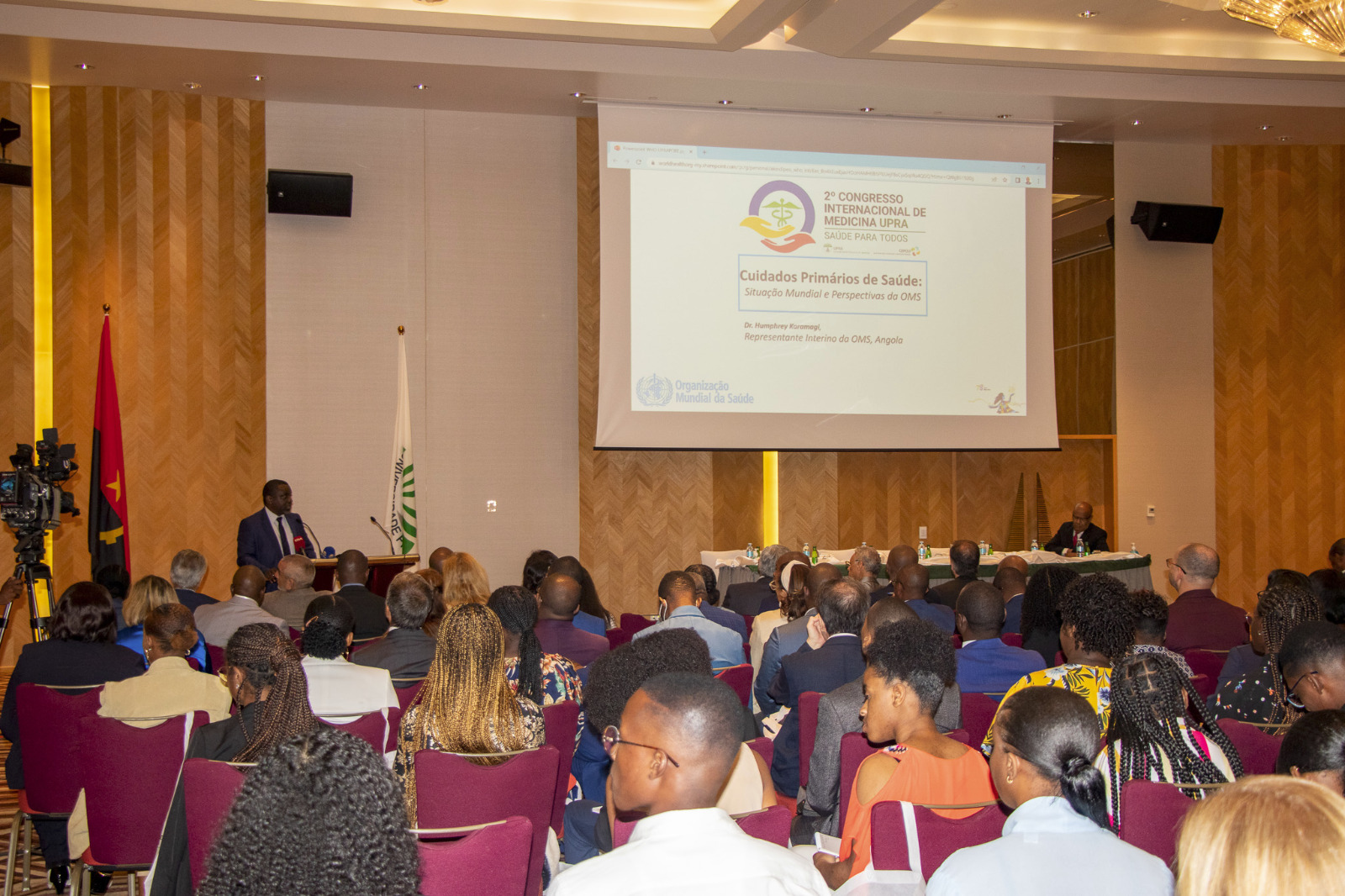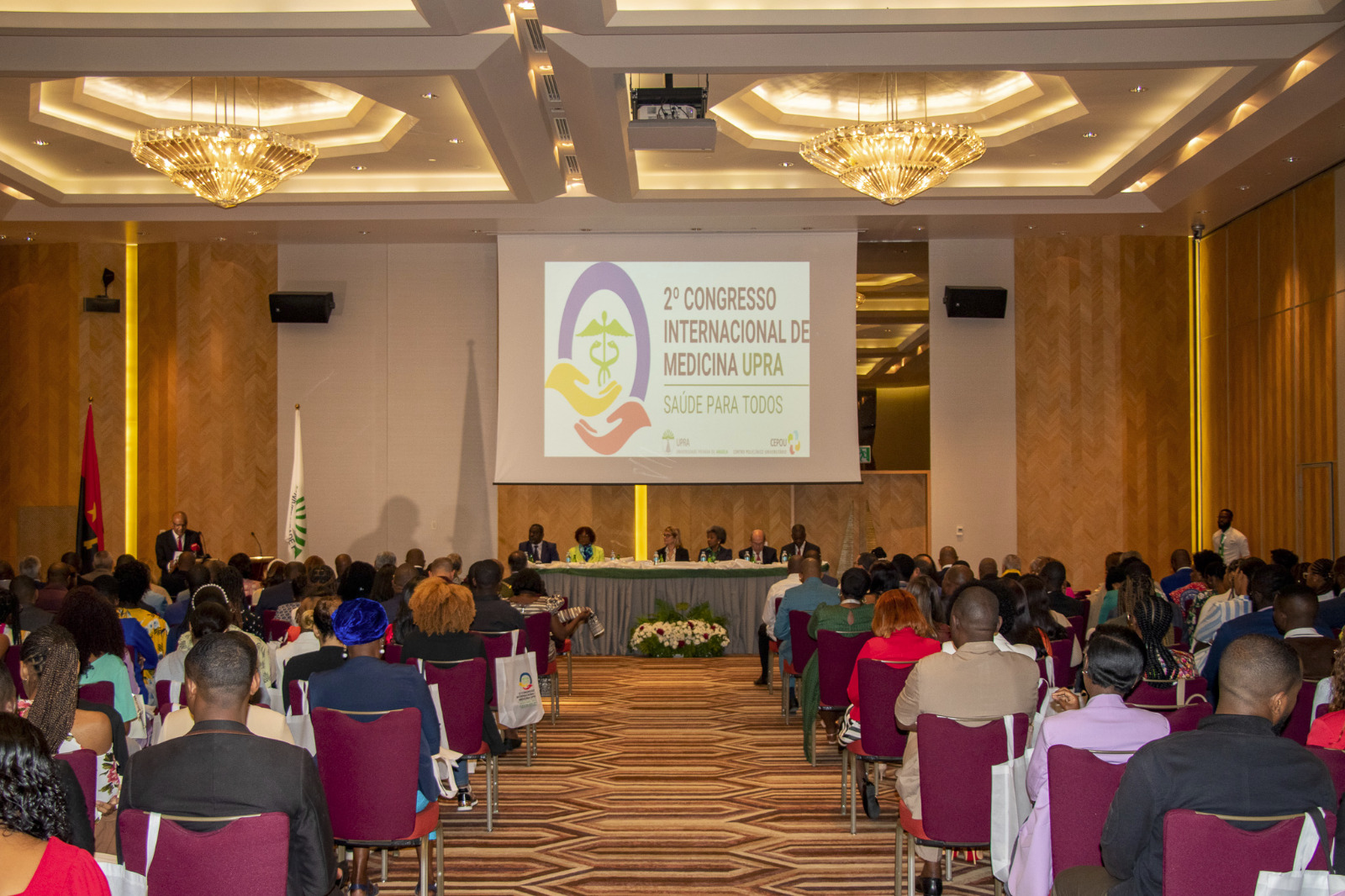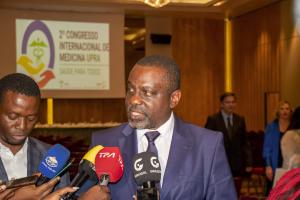WHO reiterates its support for the revitalization of Primary Health Care in Angola.
Luanda, 7 July 2023 - The WHO African Region has significantly improved Universal Health Coverage since 2000, driven mainly by enhanced interventions addressing infectious conditions. However, this progresses it’s not happening in other crucial areas of health, such as ensuring health security or health in all its determinants, which may undermine aspirations to achieve adequate health service coverage.
According to the WHO Interim Representative in Angola, Dr. Humprhrey Karamagi, who was speaking on the sidelines of the International Medical Forum of the Private University of Angola, the uneven progress made in health in Africa can, in part, be attributed to the lack of adequate investment in the workforce, infrastructure, and health products needed to achieve, in a holistic and sustained manner, Universal Health Coverage.
For Dr. Karamagi, it is crucial to scale up Primary Health Care (PHC) to make services universally accessible to individuals and families in the community through their full participation and at a cost that the community and the country can afford at all stages of their development, in a spirit of self-reliance and self-determination.
"Regrettably, data shows that as of 2022, 75% of countries in the WHO African Region spend less than the per capita needs, estimated at $127, to provide a package of essential health services and realize average health expenditure to $54 per capita. Therefore, the Abuja target of allocating up to 15% of the general state budget to health remains unfulfilled, further delaying the realization of the assumption of health for all."
In 2018, WHO Member States endorsed the Astana Declaration on Primary Health Care (PHC), emphasizing addressing the health and wellness needs and requirements of the individual/person to accelerate the movement towards universal health coverage, health security, and health in all its determinants. This revitalized approach to PHCs, compared to the 1978 Ama Ata conference, maintains the need for integration, multisectoral, and community empowerment as significant components for achieving person-centered health and well-being.
In this context, for the effective implementation of Primary Health Care, WHO proposes that Member States implement five areas of action, namely (1) defining essential services, (2) rationalizing service delivery modalities, (3) integrating PHC components into the way investments are made in the health system, (4) preparing the health system to function effectively and (5) monitoring progress against health objectives being achieved as a result.
"As the Government of Angola's strategic partner in the health sector, WHO reiterates its commitment to support the Ministry of Health to accelerate the revitalization of Primary Health Care and ensure that all Angolans, everywhere, have access to quality health care, leaving no one behind," said Dr Karamagi.





